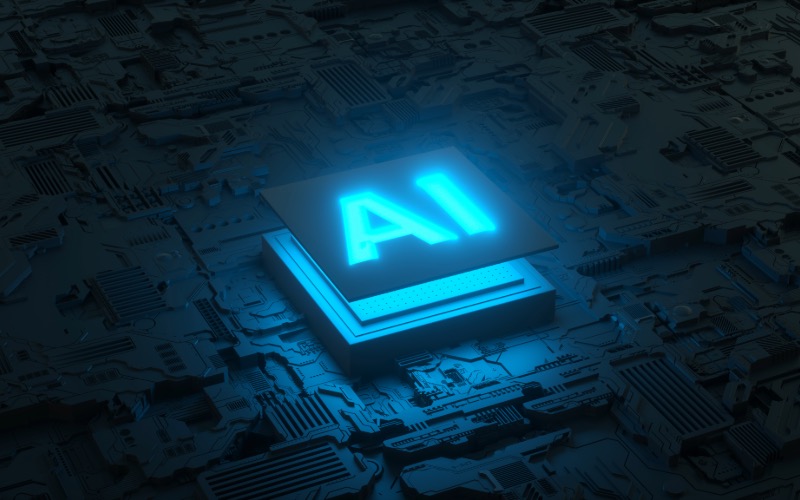The latest developments in artificial intelligence
Posted on: May 17, 2024by Ben Nancholas

Artificial intelligence (AI) continues to evolve at an exponential rate, revolutionising industries, enhancing daily tasks, and pushing the boundaries of what machines can achieve. AI is making significant strides, thanks to breakthroughs in areas such as machine learning, deep learning, and neural networks.
AI is being applied in diverse domains, including entertainment, education, healthcare, cyber security, and more, unlocking new possibilities and improving efficiency for various sectors.
In this blog, we’ll delve into the most recent developments in AI, exploring new technologies, initiatives, and applications that are shaping the future.
Advancements in machine learning algorithms
Machine learning algorithms are computational methods that enable machines to learn from data and make predictions or decisions without being explicitly programmed. These algorithms lie at the heart of AI systems.
Recent developments have seen the emergence of more adaptive and efficient algorithms, capable of handling large datasets and real-time inputs. Initiatives led by institutions like MIT, Microsoft, and NVIDIA are pushing the boundaries of machine learning, exploring new AI models and architectures such as GPT-4 and generative AI.
Breakthroughs in deep learning
Deep learning, a subset of machine learning that utilises neural networks with many layers, has fueled remarkable progress in various domains. These deep neural networks are capable of automatically learning hierarchical representations of data, extracting features at multiple levels of abstraction.
From computer vision to natural language processing (NLP), deep learning algorithms are transforming how AI systems interpret and analyse data. Organisations like OpenAI and Microsoft are at the forefront of deep learning research, developing AI-powered solutions that are reshaping industries and driving innovation.
The rise of AI-powered healthcare
One of the most promising applications of AI is in healthcare. AI systems are revolutionising medical diagnosis, drug discovery, and patient care, according to research. Through the use of AI algorithms and chatbots, healthcare providers can deliver more accurate diagnoses, streamline administrative tasks, and improve patient outcomes. With the integration of AI technology, healthcare professionals can leverage vast datasets to identify patterns and insights that were previously inaccessible.Enhancing decision-making with AI
AI is increasingly being used to assist decision-making processes across various sectors. From finance to marketing, AI algorithms analyse vast amounts of data to provide valuable insights and predictions.
Real-time AI solutions are enabling organisations to make informed decisions quickly, optimising processes and maximising efficiency. Whether it’s identifying investment opportunities or personalising customer experiences, AI-powered decision support systems are becoming indispensable tools for businesses.
The evolution of chatbots and virtual assistants
Chatbots and virtual assistants powered by AI are becoming ubiquitous in our daily lives. These AI agents use natural language processing (NLP) algorithms to understand and respond to human language.
Companies like Amazon and Microsoft are investing heavily in chatbot technology, developing AI-driven virtual assistants that can handle a wide range of tasks, from customer support to scheduling appointments.
As AI continues to improve, chatbots are becoming more sophisticated, capable of engaging in meaningful conversations and providing personalised assistance.
AI in cyber security: defending against threats
With the increasing prevalence of cyber threats, AI is playing a crucial role in cyber security. AI-powered algorithms can analyse vast amounts of data to detect anomalies and identify potential security breaches in real-time.
Organisations are leveraging AI technology to protect their networks, endpoints, and sensitive data from cyber attacks. Deep learning algorithms are particularly effective in detecting and mitigating advanced threats, such as deepfakes and bots.
By continuously adapting to evolving threats, AI-driven cyber security solutions provide proactive defence mechanisms against malicious actors.
The promise of autonomous vehicles
Self-driving cars represent one of the most exciting applications of AI in the real world. Through the use of AI algorithms, computer vision, and reinforcement learning, autonomous vehicles can navigate roads safely and efficiently.
Companies like Tesla and Google are investing heavily in AI-based technologies for autonomous driving. By harnessing the power of AI, self-driving cars have the potential to revolutionise transportation, making roads safer and reducing traffic congestion.
AI in social media and beyond
Social media platforms, such as Meta and X (formerly Twitter) are leveraging AI algorithms to enhance user experiences and drive engagement. AI-powered recommendation systems analyse user behaviour and preferences to deliver personalised content and advertisements.
Additionally, AI-based content moderation tools help identify and remove harmful or inappropriate content from social media platforms.
The future of AI: towards quantum computing
As AI continues to advance, researchers are exploring new frontiers in computing, such as quantum computing.
Quantum AI promises to revolutionise machine learning and data science by utilising the principles of quantum mechanics to perform computations at unprecedented speeds. While still in its early stages, quantum AI has the potential to unlock new capabilities and solve complex problems that are currently beyond the reach of classical computing.
The road to an AI-powered world
The latest developments in artificial intelligence are reshaping industries, improving efficiency, and enhancing our daily lives. AI-powered solutions are driving innovation and addressing real-world challenges, in sectors such as healthcare and cyber security, and in our personal experience of social media and the cars we drive.
As AI technology continues to evolve, the possibilities are limitless, paving the way for a future where intelligent machines augment human capabilities and transform society. With ongoing research, initiatives, and breakthroughs, the journey towards a smarter, more adaptive AI-powered world is only just beginning.
Be at the forefront of exciting AI developments
If you’re interested in progressing your career into the exciting field of developing AI tools that push the technological revolution forward, equip yourself with sought-after skills by studying Keele University’s online MSc Computer Science with Artificial Intelligence.
By exploring real-world use cases, you’ll gain an understanding of how artificial intelligence is being used currently, and the possibilities for the future. You will also get a thorough grounding in core computer science topics to complement your AI specialisation, completing modules covering big data, programming languages, and software engineering, among others.
Taught entirely online and part-time, you have the flexibility to fit your studies around your current role or personal commitments. With six starts a year, you could begin your journey into this future-focused sector within weeks.
